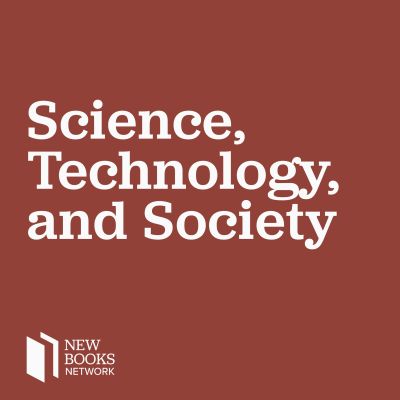Interviews with Scholars of Science, Technology, and Society about their New Books Support our show by becoming a premium member! https://newbooksnetwork.supportingcast.fm/science-technology-and-society
https://newbooksnetwork.com
Gesamtlänge aller Episoden: 89 days 14 hours 39 minutes
Paul-Brian McInerney, “From Social Movement to Moral Market: How the Circuit Riders Sparked an IT Revolution and Created a Technology Market” (Stanford UP, 2014)
Paul-Brian McInerney is assistant professor of sociology at the University of Illinois-Chicago. He is the author of From Social Movement to Moral Market: How the Circuit Riders Sparked an IT Revolution and Created a Technology Market (Stanford Universi...
Abena Dove Osseo-Asare, “Bitter Roots: The Search for Healing Plants in Africa” (University of Chicago Press, 2014)
Abena Dove Osseo-Asare‘s wonderful new book is a thoughtful, provocative, and balanced account of the intersecting histories and practices of drug research in modern Ghana, South Africa, and Madagascar. Bitter Roots: The Search for Healing Plants in Af...
David Kaiser, “How the Hippies Saved Physics” (W.W. Norton, 2012)
David Kaiser‘s recent book is one of the most enjoyable and informative books on the history of science that you’ll read, full-stop. The deservedly award-winning How the Hippies Saved Physics: Science, Counterculture, and the Quantum Revival (W.W.
Andrew L. Russell, “Open Standards in the Digital Age” (Cambridge UP, 2014)
We tend to take for granted that much of the innovation in the technology that we use today, in particular the communication technology, is made possible because of standards. In his book Open Standards and the Digital Age: History, Ideology,
Matthew C. Hunter, “Wicked Intelligence” (University of Chicago Press, 2013)
The pages of Matthew C. Hunter‘s wonderful new book are full of paper fish, comets, sleepy-eyed gazes, drunk ants, and a cast full of fascinating (and sometimes hilarious) members of the experimental community of Restoration London.
Sarah Franklin, “Biological Relatives: IVF, Stem Cells, and the Future of Kinship” (Duke University Press, 2013)
Sarah Franklin‘s new book is an exceptionally rich, focused yet wide-ranging, insightful account of in vitro fertilization (IVF) and the worlds that it creates and inhabits. Biological Relatives: IVF, Stem Cells,
Timothy Morton, “Hyperobjects: Philosophy and Ecology after the End of the World” (University of Minnesota Press, 2013)
So much of Science Studies, of STS as a field or a point of engagement, is deeply concerned with objects. We create sociologies and networks of and with objects, we study them as actors or agents or actants,
Michael Pettit, “The Science of Deception: Psychology and Commerce in America” (University of Chicago Press, 2013)
Parapsychology. You may have heard of it. You know, telepathy, precognition, clairvoyance, psychokinesis. Spoon-bending and that sort of thing. If you have heard of it, you probably think of it as a pseudoscience. And indeed it is.
Eduardo Kohn, “How Forests Think: Toward an Anthropology beyond the Human” (University of California Press, 2013)
When you open Eduardo Kohn‘s How Forests Think: Toward an Anthropology beyond the Human (University of California Press, 2013), you are entering a forest of dreams: the dreams of dogs and men, dreams about policemen and peccaries,
Hallam Stevens, “Life Out Of Sequence: A Data-Driven History of Bioinformatics” (University of Chicago Press, 2013)
Hallam Stevens‘s new book is a rich and fascinating ethnographic and historical account of the transformations wrought by integrating statistical and computational methods and materials into the biological sciences.
